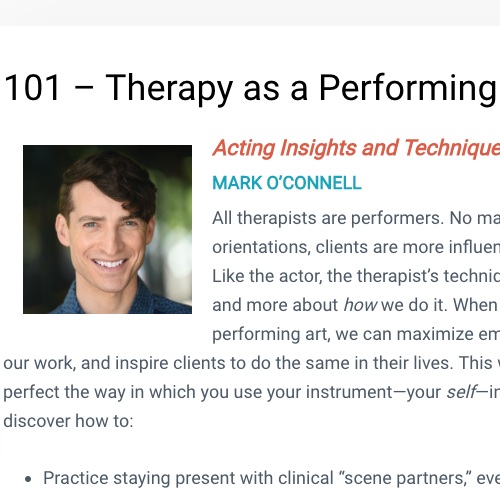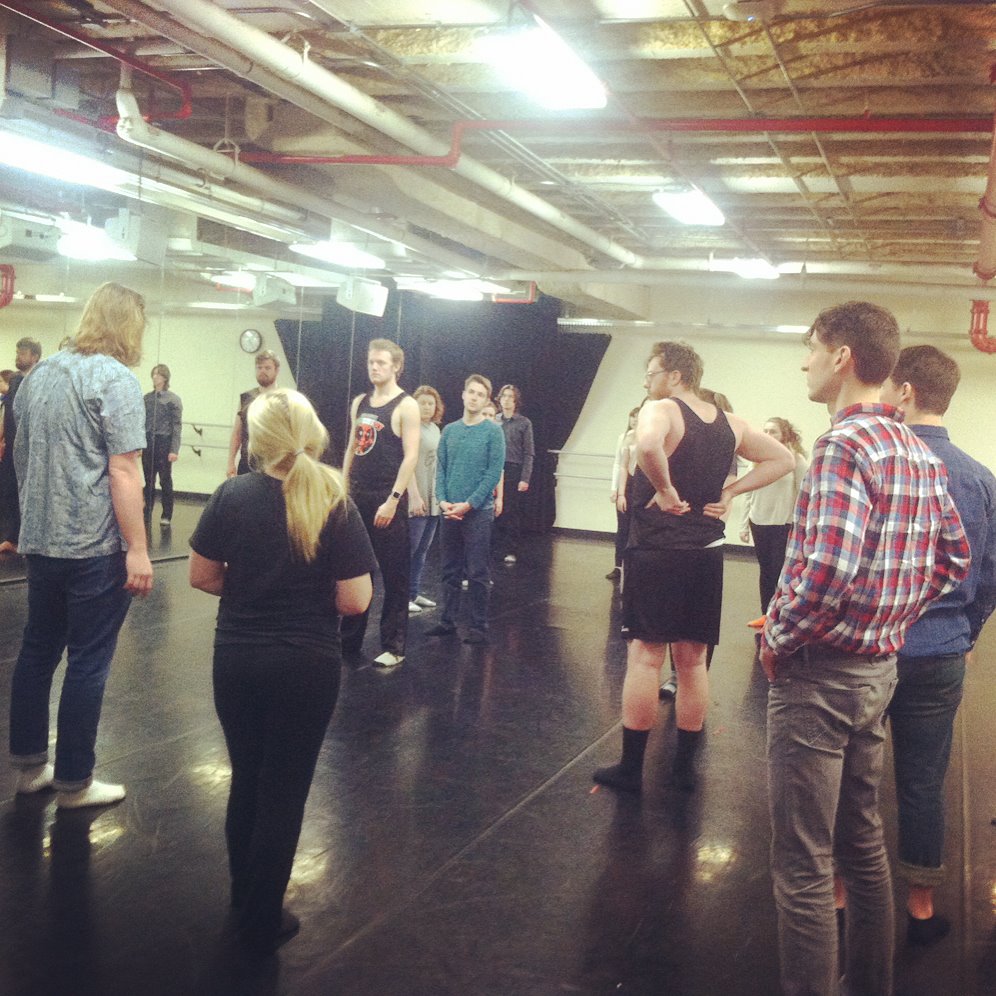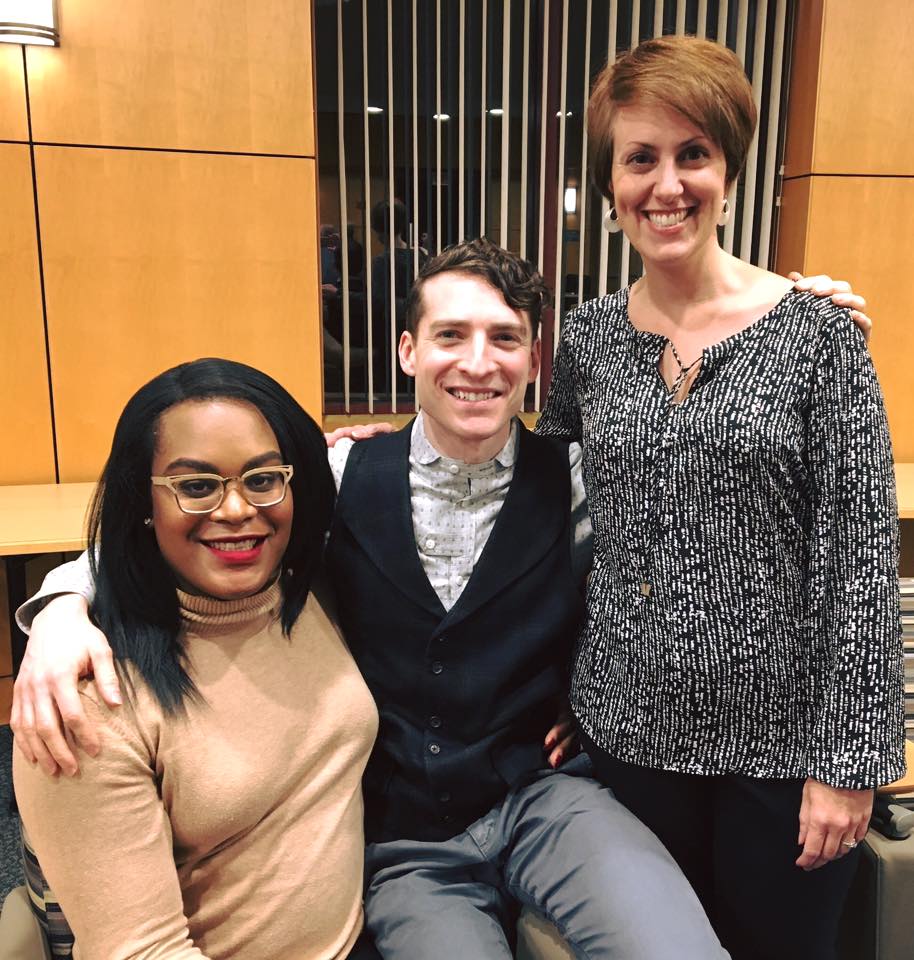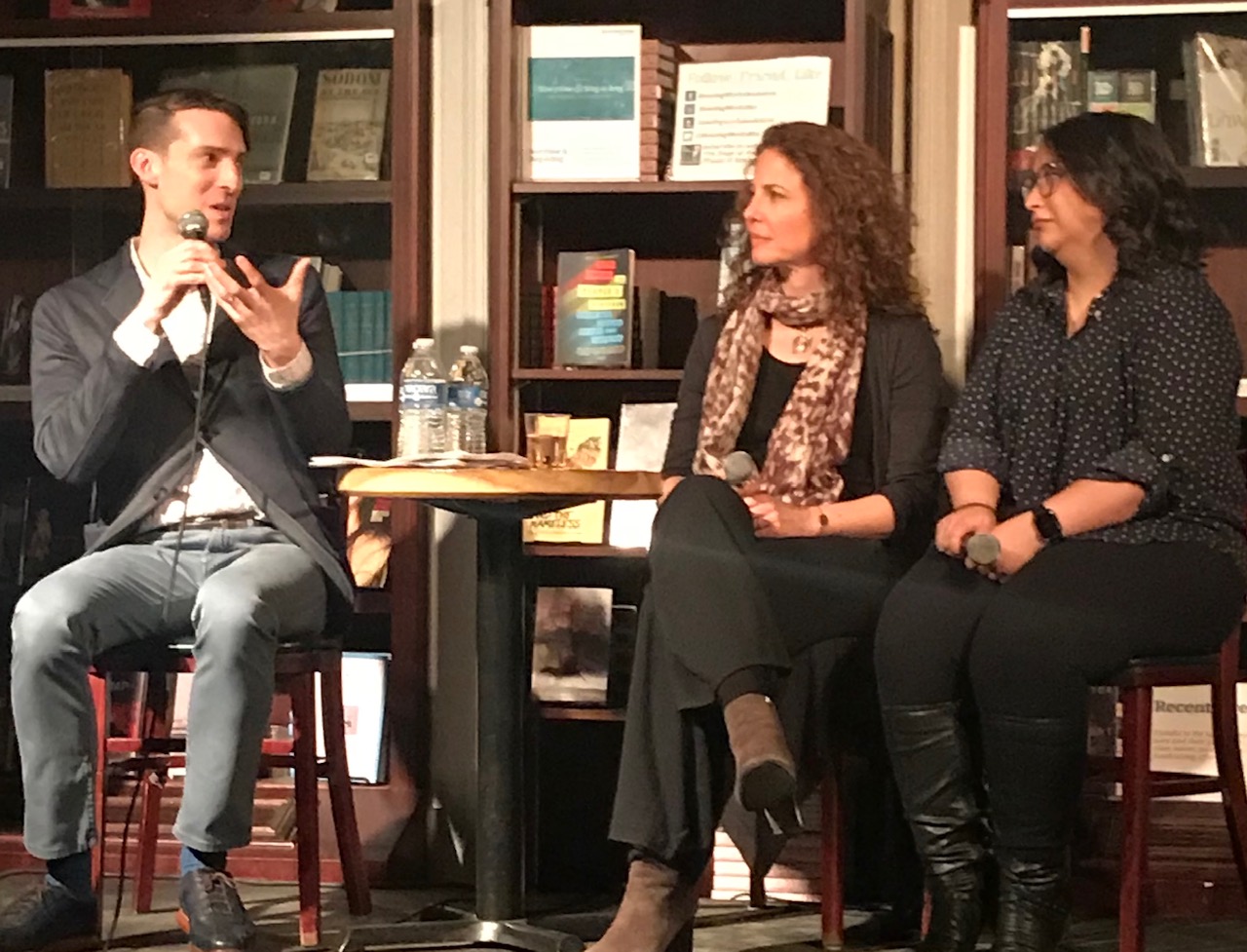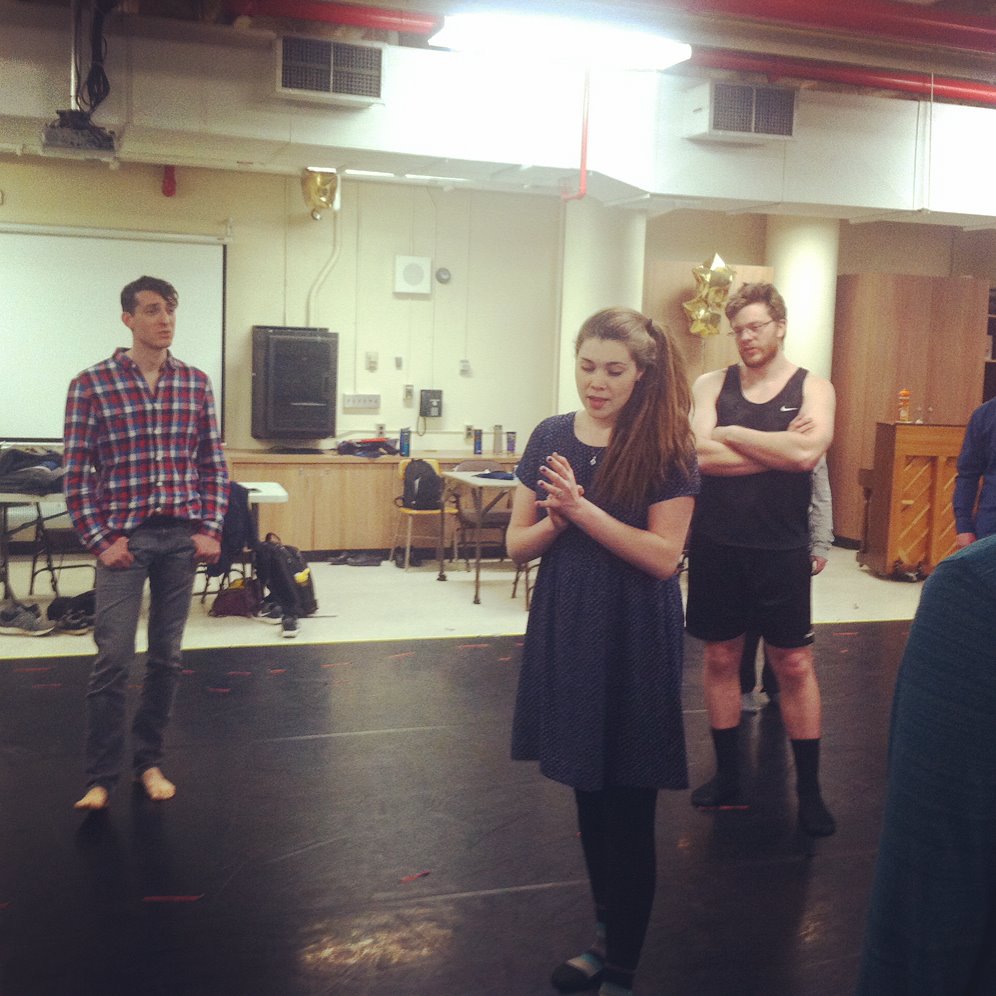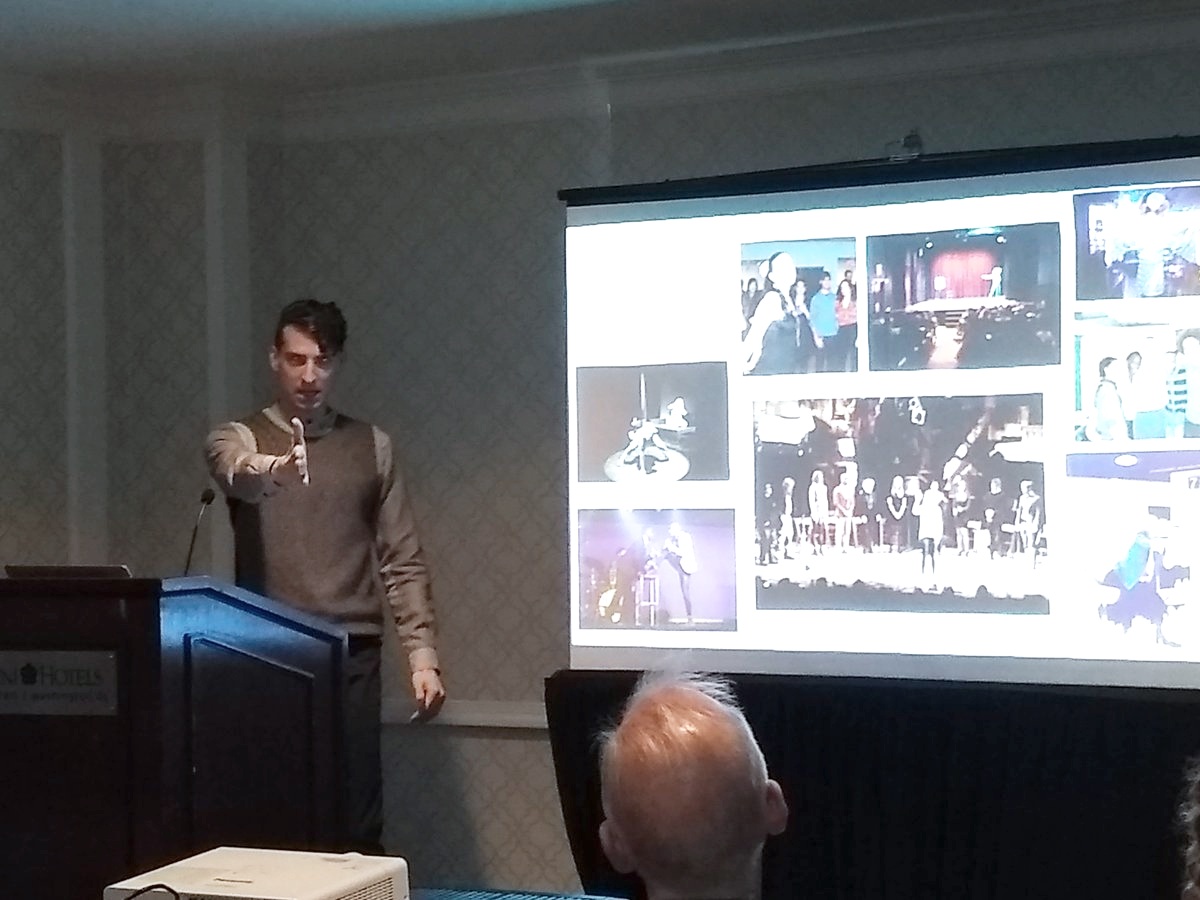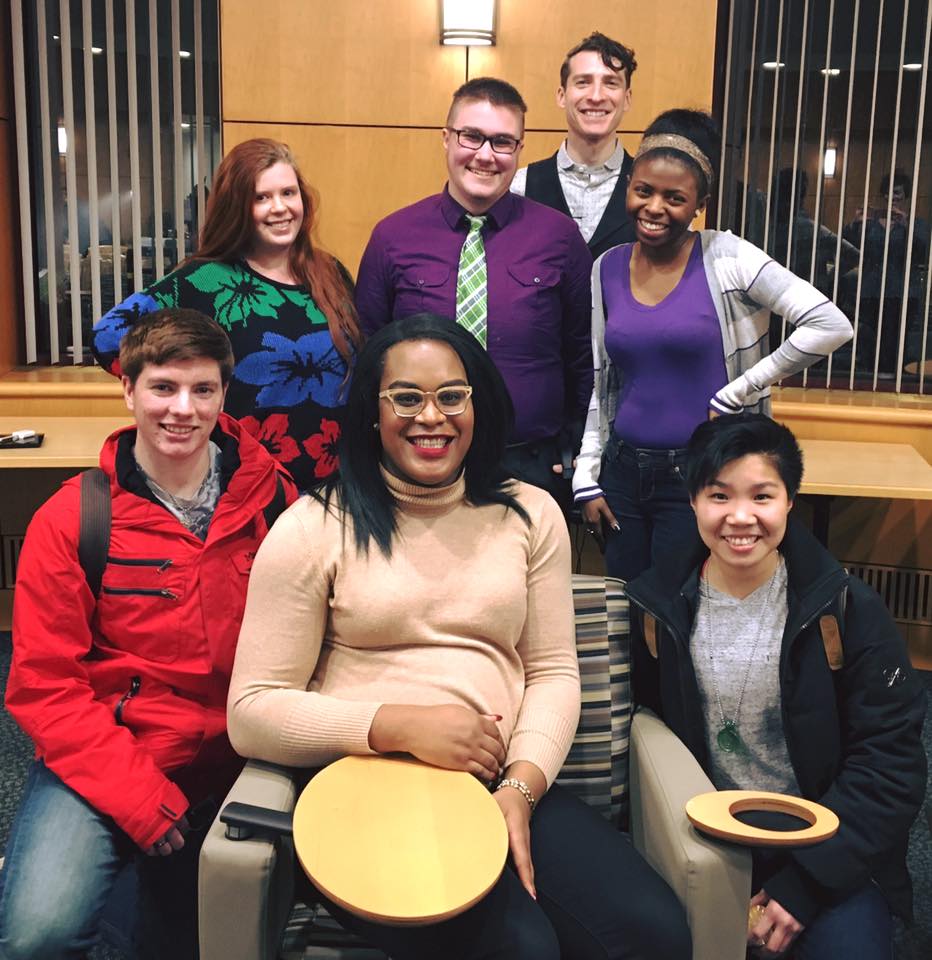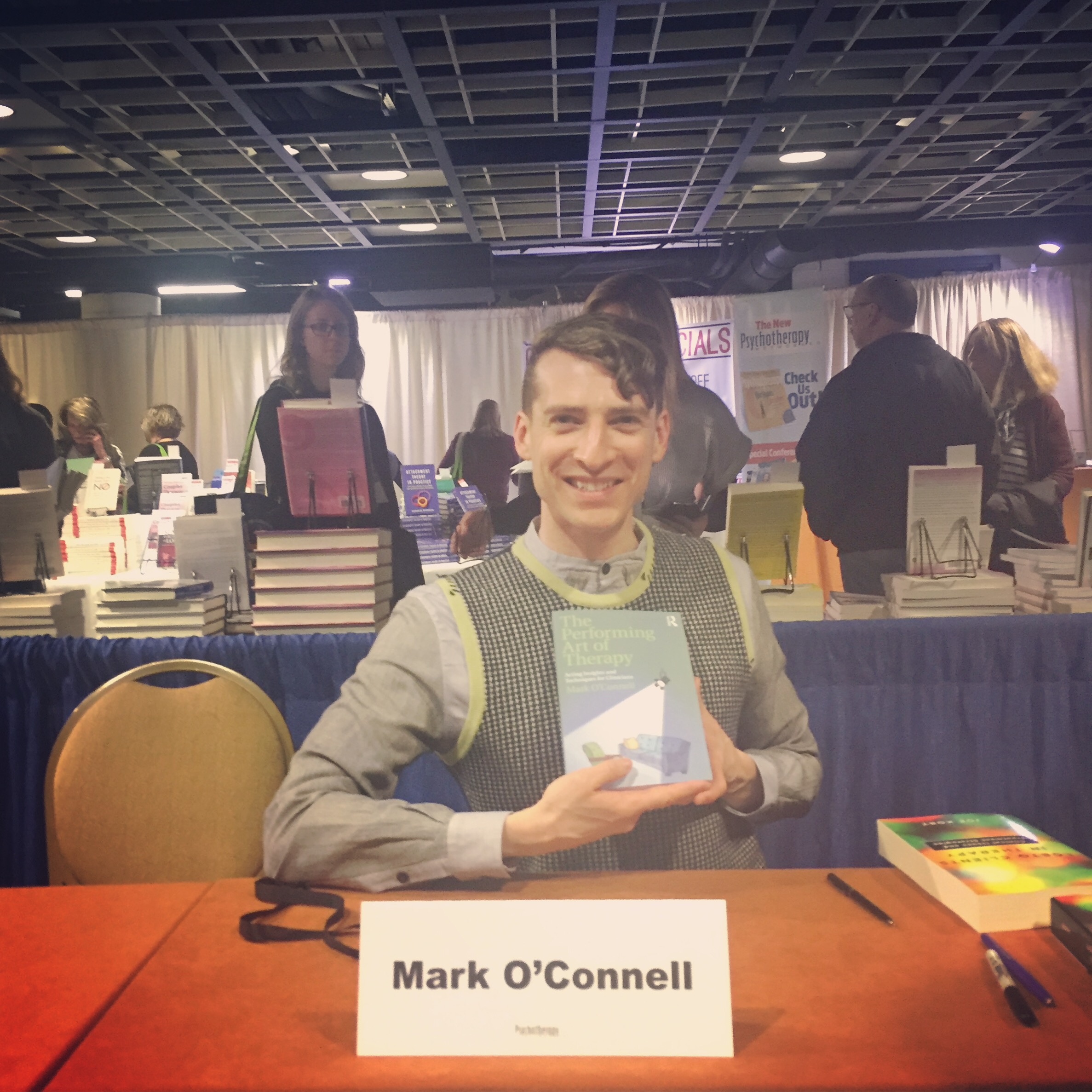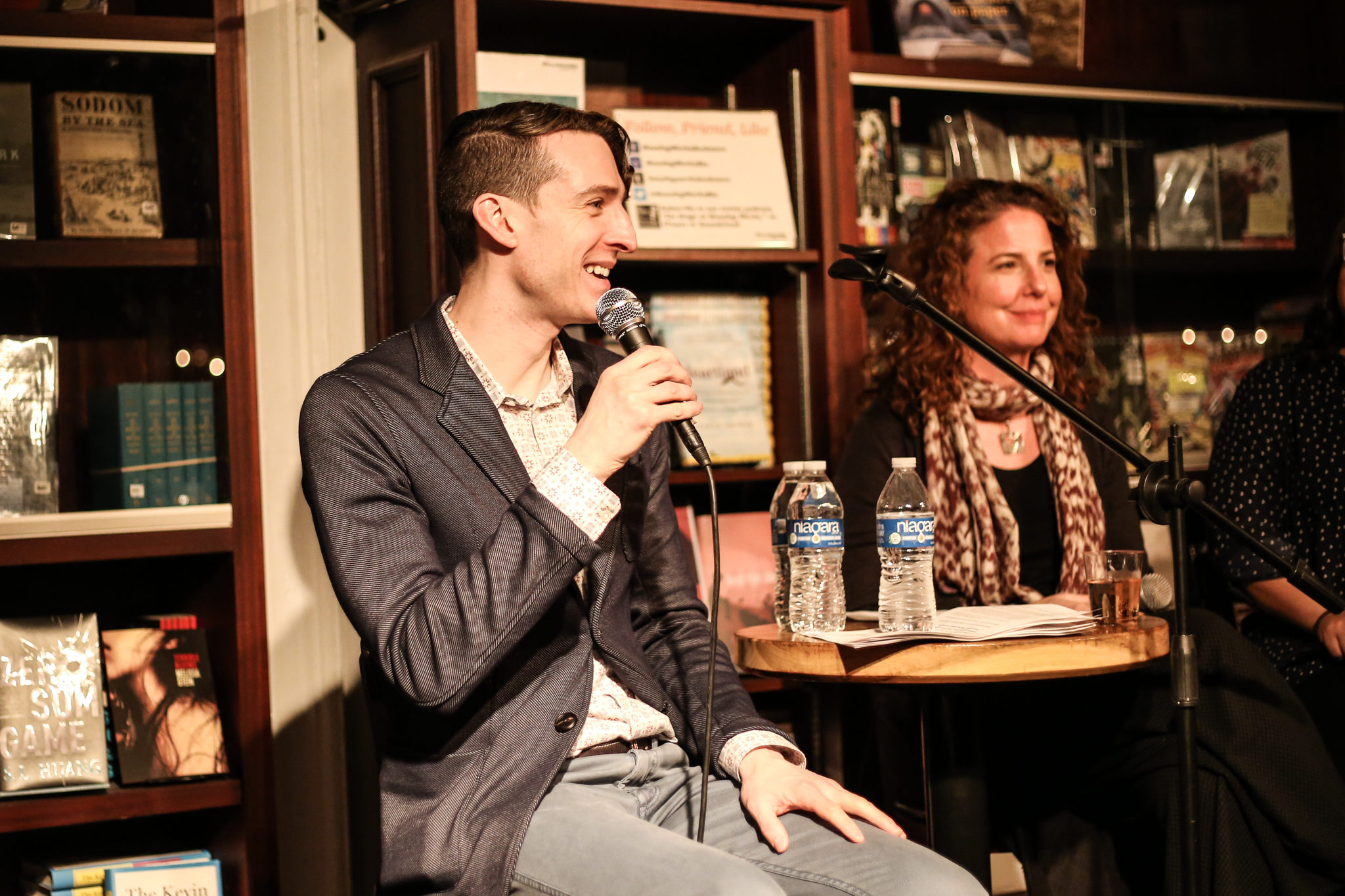I offer workshops, trainings, and talks on the performing art of therapy, for clinicians, performers, and students. Each engagement ranges from two to five hours, depending on your needs.
training Outline
For Clinicians:
I. An introduction to the concept of using and taking care of our “instruments” as therapists, the way actors take care of theirs—in order to be as present, available, and effective with our scene partners as possible. I use anecdotes; share quotes—comparing therapy to drama—from a range of clinicians with varying theoretical orientations, from Freud onward; and case examples--such as this one.
II. Body exercieses are used to heighten each participant’s mental, emotional and physical presence. This invites them to find their own visceral sense of how thinking of themselves as performers can enhance their clinical work.
III. We discuss listening as an action that involves presence as opposed to absence. I explain how film acting techniques can help us to become aware of the power of our subtext, even when we’re not conscious of it. And how we can use our subtext—authentically, mindfully and with purpose—even when we're just listening quietly. We engage in screen acting exercises to practice using our own subtext, and discuss performances by great actors who have played therapists on screen and what makes them so effective.
IV. We practice using breathing techniques in order to be present: which entails awareness of where we are in each moment, informs us where we need to go, and helps us to get there. We discuss the different clinical purposes that breathing warm-ups can serve at different times: e.g., listening intently with grounded stillness; tolerating stressful emotions; or even asserting authority.
V. We finish up with an energy meditation that helps participants get a sense of where they tend to live energetically in their physical/emotional bodies, where their clients live, and how they can not only empathize with different ways of being in the world, but also consciously tap into a variety of truthful selves within, and use that state of being with clinical purpose.
Then I take questions and we discuss clinical case material that comes to mind for each participant.
For performers:
Workshops for professional actors and students are adapted from the model above, with an emphasis on how each performer can use their creative and technical skills in a wide variety of ways, not just to play a character for a production. For example, we explore ways they could possibly use all of their conservatory training as therapists, counselors, coaches, teachers and myriad other professional roles. We also practice mind/body/energy work using text, in order to help each performer to connect to a multiplicity of their potential selves.

